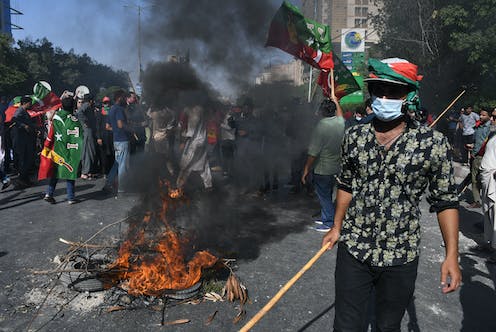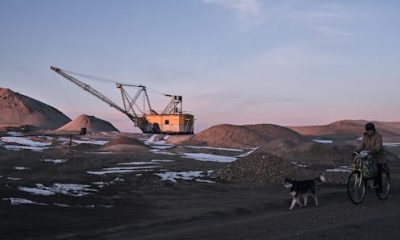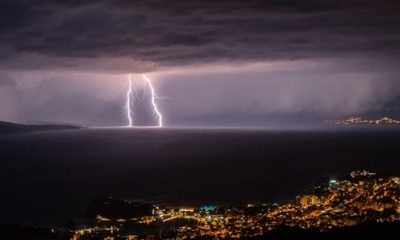
Supporters of Imran Khan protest the former prime minister’s arrest. Sabir Mazhar/Anadolu Agency via Getty Images
Former Pakistani prime minister Imran Khan was arrested amid chaotic scenes on May 9, 2023, while appearing in court on corruption charges.
Khan, who was ousted from power in April 2022, has denied any wrongdoing and has called on supporters to protest his detainment.
The Conversation asked Ayesha Jalal, a professor of Pakistan’s history at Tufts University, to explain what the arrest means for the country’s politics.
What is behind Khan’s arrest?
The first thing to note is that Khan was arrested by the Pakistan Rangers rather than the police. The Rangers, a paramilitary force, are usually deployed for internal security matters and surrounded Khan while wearing riot gear during the operation.
The arrest follows an earlier warrant issued by the National Accountability Bureau, which is tasked with investigating corruption cases. But it isn’t entirely clear why the paramilitary force was needed to make the arrest.
The charges that led to the arrest relate to a murky corruption case involving the alleged payment of 5 billion Rupees (US$17.5 million) to Khan and his wife for legalizing a laundered sum of money for the couple’s Al-Qadir Trust. It is alleged that land and money came from real estate tycoon Malik Riaz after the then-Khan government in 2019 helped Riaz in a case involving money repatriated to Pakistan following a U.K. investigation into the tycoon.
Khan denies the charges, with one close aide to the opposition leader accusing the government of “state terrorism” over the “abduction.” But it is just one of many legal challenges facing Khan. In fact, he faces dozens of corruption and other charges, even terrorism. But I should add that charges of graft being levied against politicians and even former prime ministers are far from uncommon in Pakistan.
Why were paramilitary Rangers involved?
That isn’t entirely clear. Police had previously tried to arrest Khan in Lahore. But calling in the Rangers indicates that the military establishment is behind the arrest, or at the very least certainly approves of it.
Nothing in Pakistani politics happens without the military’s involvement, so perhaps that isn’t too surprising. And it is notable that the arrest occurred a day after the Inter-Services Public Relations – the media wing of Pakistan’s armed forces – denounced Khan for alleging that a senior general tried to kill him twice and played a role in the murder of a broadcast journalist, seemingly with no evidence.
What has been the response to Khan’s arrest?
Supporters of the former prime minister and cricket star have been saying all along that arresting Khan would be a red line. So, of course, there have been protests, some of which have turned violent.
You have to remember that Khan has a strong support base, but the country is very fragmented politically. So it is a dangerous situation.
My fear is that the arrest will only pour more fuel on a combustible situation. Pakistan has been simmering since Khan’s ouster in 2022, with the very real threat of political tensions giving way to widespread violence.
What was needed was for all involved to try to lower the temperature, but the circumstances of Khan’s arrest have only served to heighten tensions.
How does the arrest reflect on the current government?
The optics are bad for the Pakistani government. Many in Pakistan will view this as a form of political harassment, regardless of the merits of the case and strength of evidence against Khan.
It also strengthens the view that the National Accountability Bureau is a tool for the serving government to persecute political opponents. Khan’s government itself used the bureau when it arrested opposition leader Shahbaz Sharif, the current prime minister, in relation to a corruption case.
More worryingly, the arrest may be a precursor for an attempt to disqualify Khan from public office – which I believe would be a very dangerous move in an election year.
And this all comes while the incumbent government is facing severe challenges, having been unable to control soaring inflation or make progress on a crucial International Monetary Fund loan to dig the country out of its economic woes.
How will this affect Khan’s popularity?
In the short term, this could see a further surge in his popularity. Khan is framing himself as an anti-establishment figure, despite once being a beneficiary of the establishment himself. Either way, anti-establishment narratives work well with sections of the Pakistani population.
Since being ousted from power, Khan has been busy rallying his base – even surviving an apparent assassination attempt while campaigning. A poll from March 2023 showed that he is by far the most popular political leader in the country, far ahead of Sharif and his brother, and also former prime minister, Nawaz Sharif.
What does this mean for the upcoming election?
We will have to see. Elections are expected to take place in October, although Khan has repeatedly called for the vote to be brought forward to as soon as possible.
Of course, a lot hinges on whether Khan will be allowed to run, or if the government will try to find a way to disqualify him.
If it does find a way to prevent Khan from taking part, the government is mistaken in thinking that the opposition party, Pakistan Tehreek-e-Insaf, or PTI, would be easier to handle without Khan. Khan himself anticipated this in an interview in March with NPR: “I don’t know whether they’ll eventually end up disqualifying me, but it doesn’t matter because the party I lead now has a popularity wave unprecedented in our history. So whether I’m in jail or not, the party is going to sweep the elections anyway.”
But this is a situation that is still unfolding. With Pakistani politics, anything could happen between now and the election – whenever that will be.
Ayesha Jalal does not work for, consult, own shares in or receive funding from any company or organisation that would benefit from this article, and has disclosed no relevant affiliations beyond their academic appointment.
Advertisement

Advertisement
Contact Us
If you would like to place dofollow backlinks in our website or paid content reach out to info@qhubonews.com











